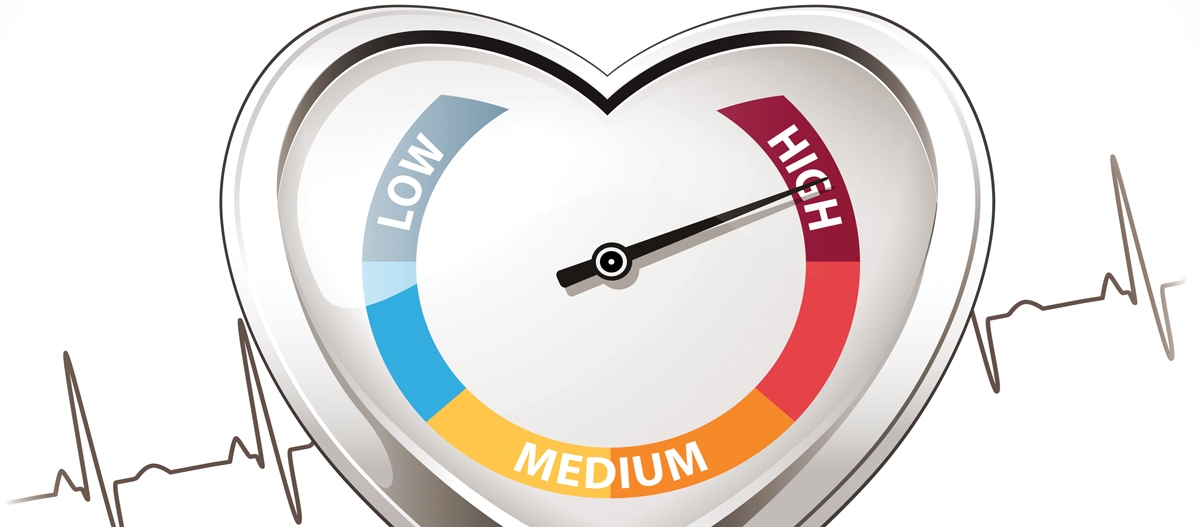Silent but deadly, hypertension can cause serious health complications like heart disease (the leading cause of death in the United States and in Montana), stroke (the fourth leading cause of death in Idaho) and kidney failure. Screening and early treatment, as well as lifestyle changes to monitor and control high blood pressure, can mean the difference between life and death.
Most of the time, high blood pressure (hypertension) has no obvious symptoms to indicate that something is wrong. The best way to protect yourself is by being aware of the risks and making changes that matter, according to the American Heart Association/American Stroke Association.
Know where you stand by measuring your blood pressure. Learn to recognize your risk factors for developing hypertension—this awareness can help you and your loved ones make positive changes to avoid the serious health problems that can result from blood pressure being too high for too long.
What is Hypertension?
High blood pressure (HBP) is also called hypertension. It occurs when someone’s blood pressure—the force of blood pushing against the walls of their blood vessels—is consistently too high.
Your tissues and organs need oxygenated blood that the circulatory system carries throughout the body. When the heart beats, it creates pressure that pushes blood though a network of tube-shaped blood vessels, including arteries, veins and capillaries. This blood pressure is the result of a) systolic pressure, which occurs as blood pumps out of the heart and into the arteries, and b) diastolic pressure that is created as the heart rests between heart beats.
These are each represented by numbers in a blood pressure reading, such as 120/80 mm Hg—which is considered normal. The upper number represents systolic pressure and the lower number is diastolic pressure. New clinical guidelines from the American College of Cardiology/American Heart Association recommend treating high blood pressure—with lifestyle changes or even medication—sooner than later.
High blood pressure causes harm is by increasing the workload of the heart and blood vessels, making them work harder and less efficiently. Over time, the force and friction of high blood pressure damages artery tissues, allowing LDL (bad) cholesterol to form plaque in the artery walls, the start of artherosclerosis (narrowing of the arteries).
The more the plaque and damage increases, the smaller the insides of the arteries become—raising blood pressure and starting a vicious circle that damages your arteries, heart and the rest of your body. This can lead to other health conditions ranging from arrhythmia (irregular heartbeat) to heart attack and stroke.
Common Hereditary and Physical Risk Factors
Certain factors can put a person at a greater risk for developing high blood pressure. Some risk factors are not under your control, but others are. Understanding these risk factors can help you be more aware of how likely you are to develop high blood pressure, allowing you to prevent, stall the onset, or control the disease if diagnosed with hypertension.
Family history: If your parents or other close blood relatives have high blood pressure, there’s an increased chance that you’ll get it, too.
Age: The older you are, the more likely you are to get high blood pressure. As we age, our blood vessels gradually lose some of their elastic quality, which can contribute to increased blood pressure. However, children can also develop high blood pressure.
Gender: Until age 64, men are more likely to get high blood pressure than women are. At 65 and older, women are more likely to get high blood pressure.
Race: African-Americans tend to develop high blood pressure more often than people of any other racial background in the United States. Hypertension also tends to be more severe in African Americans, and some medications are less effective in treating HBP.
Chronic kidney disease (CKD): High blood pressure may occur as a result of kidney disease. Having HBP may also may also cause further kidney damage.
Risk Factors You Can Change
Lack of physical activity: Not getting enough physical activity as part of your lifestyle increases the risk of getting high blood pressure. Physical activity is great for your heart and circulatory system in general, and blood pressure is no exception.
An unhealthy diet, especially one high in sodium: Good nutrition from a variety of sources is critical for your health. A diet that is too high in salt consumption, as well as calories, saturated and trans-fat and sugar, carries an additional risk of high blood pressure. On the other hand, making healthy food choices can actually help lower blood pressure.
Being overweight or obese: Carrying too much weight puts an extra strain on your heart and circulatory system that can cause serious health problems. It also increases your risk of cardiovascular disease, diabetes and high blood pressure.
Drinking too much alcohol: Regular, heavy use of alcohol can cause many health problems, including heart failure, stroke and an irregular heartbeat. It can cause your blood pressure to increase dramatically and can also increase your risk of cancer, obesity, alcoholism, suicide and accidents.
Smoking and tobacco use – Using tobacco can cause your blood pressure to temporarily increase and can contribute to damaged arteries. Secondhand smoke also increases the risk of heart disease for nonsmokers.
Stress: Stress is not necessarily a bad thing in and of itself, but too much stress may contribute to increased blood pressure. Also, unmanaged stress can encourage behaviors that increase blood pressure, such as poor diet, physical inactivity and using tobacco or drinking alcohol more than usual.
While heart disease is still the No. 1 killer in the United States and around the world, death rates have decreased significantly. Earlier and better treatment of high blood pressure has played a key role in that decrease. You can have a huge impact on the health outcomes of your family and friends by spreading the message of prevention and control of hypertension too. MSN











